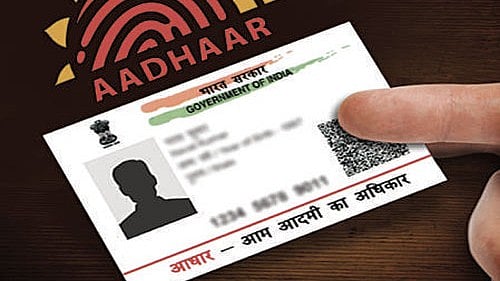
Representative image of an Aadhar card.
Credit: PTI Photo
An Aadhar card is a basic identity proof in India, with over 140 crore documents generated in last 15 years. The government reported that there were inappropriate registrations, especially in adults. It was pointed out that people who are no longer alive also had active Aadhars, suggesting misuse of the official document.
In a recent hearing, the Election Commission of India clarified that Aadhar doesn't declare an individual's citizenship.
Following this, Unique Identification Authority of India (UIDAI), a statutory authority established by the Government of India, plans to tighten the process of issuing an Aadhar.
The authorities aim to tap on key documents, including passport, ration card, and any other supporting proofs to curb its malpractice.
The Times of India reported that the move is an aimed at thwarting attempts by illegal immigrants procuring the unique ID by unfair means. The measure is aimed at reducing and restricting the identity proof issued based on forged or fake documents.
Citizens' applications would now be processed only after a foolproof verification of credentials, ensuring that Aadhaar is only given after rigorous checks through a state portal.
"It's going to be difficult for any illegal immigrant to now get Aadhaar," an official was quoted in the report.
